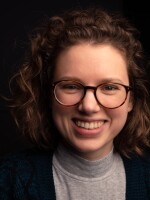Public trust in the media is at historic lows. Today, Americans believe that the majority of news they encounter is biased, according to recent polling by Gallup.
This hour, guest host David DesRoches asks--why are journalists losing ground and what can they do to regain trust?
We talk with a psychology researcher about what leads people to believe fake news. And we hear from writer Amanda Ripley about why journalists need to embrace complexity and think about the emotions behind political polarization.
Finally, we ask a climate scientist and climate journalist about how the media should be covering well-accepted scientific research that is politically contentious.
GUESTS:
- Dr. David Rand - Associate Professor of Management Science and Brain and Cognitive Science at MIT. While at Yale and colleague Gordon Pennycook published several studies about the psychology behind fake news, including a forthcoming paper (Cognition, 2018) on susceptibility to partisan fake news. They've also studied how prior exposure to a fake news headline makes people believe that false claim is more accurate in the future. (@DG_Rand)
- Amanda Ripley – Writer and contributor to The Atlantic. Her recent article for Solutions Journalism is “Complicating the Narratives” (@amandaripley)
- Dr. Gavin Schmidt - Climate scientist at NASA and director of the Goddard Institute for Space Studies (@ClimateOfGavin)
- Lisa Friedman - Climate change reporter for the New York Times (@LFFriedman)
Join the conversation on Facebook and Twitter.
READING LIST:
Solutions Journalism Network: Complicating the Narratives: What if journalists covered controversial issues differently?—?based on how humans actually behave when they are polarized and suspicious? (Amanda Ripley, June 2018) – “As politicians have become more polarized, we have increasingly allowed ourselves to be used by demagogues on both sides of the aisle, amplifying their insults instead of exposing their motivations. Again and again, we have escalated the conflict and snuffed the complexity out of the conversation. Long before the 2016 election, the mainstream news media lost the trust of the public, creating an opening for misinformation and propaganda. If the purpose of journalism is to “see the public into fuller existence,” as Jay Rosen once wrote, it’s hard to conclude that we are succeeding.”
New York Times: Pruitt’s Plan for Climate Change Debates: Ask Conservative Think Tanks (Lisa Friedman, May 2018) – “A new trove of documents sheds light on one of the most controversial proposals of Scott Pruitt’s first year as administrator of the Environmental Protection Agency: the plan to stage public debates on the veracity of climate change, an idea that was ultimately blocked by the White House.”
American Museum of Natural History: Communicating Climate Change (Gavin Schmidt) - “What we have in the situation with climate science is that the science itself has become politicized. Not the scientists. You know, if you go to a university lab or you go to a conference you just see people doing science like they would do any other science. But the context of that science has become politicized… It means that when the science goes out into the real world, you're generally only going to hear about it if it projects onto some kind of hot button issue.”
Chion Wolf contributed to this show.






